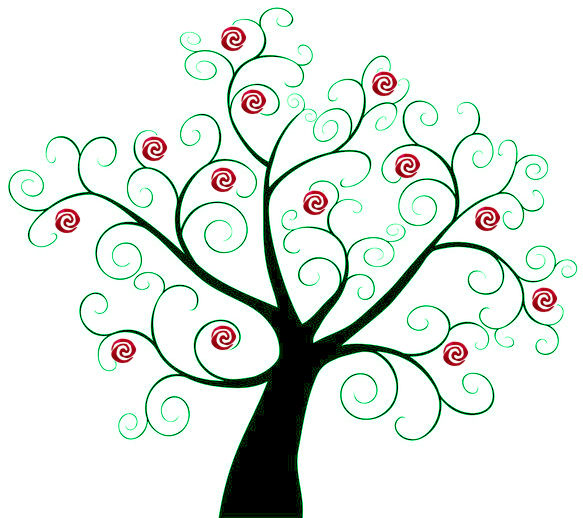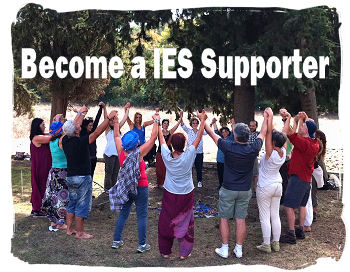
Personal growth
Ecopsychology considers personal growth the most effective path to promote the development of greater environmental awareness. During the journey of personal growth a person learns to authentically relate to himself which opens up the multiplicity, contradictory and richness of his being. This process, in turn, will lead him to develop the same “ecological” relational modalities in broader dimensions. The encounter with the nature becomes a perfect setting to connect more deeply with one’s own nature.
Ecotherapy
Nature-based methods of physical and psychological healing representing a new form or a new modality of therapy and psychotherapy that widens the traditional scope of treatment to include the human-nature relationship and expresses in a range of therapeutic and reconnective practices such: Horticultural therapy, Forest Therapy, Animal-assisted therapy, Wilderness therapy, Eco-dreamwork, and others.
more about Ecotherapy
Ecopsychotherapy
In some countries, the term Ecopsychotherapy is used to distinguish a clinical psychological treatment, performed only by psychotherapists, based on the principles and practices of Ecopsychology.
EcoCounseling
EcoCounseling accompanies the path of personal growth with a focused intent on making the person aware of his precious and unique personal contribution to give to the surrounding reality. EcoCounseling involves accompanying people to find their own unique way of activating themselves in the human and in the terrestrial communit. It combines and amalgamates the objectives and practices of Counseling and Ecopsychology, starting from the assumption that much of the existential malaise widespread today originates from a lack of roots and vision.
Green Coaching
Ecopsychology and Coaching collaborate in designing paths and practices to facilitate and accelerate the path of personal growth which is, today more than ever, indispensable to humanity. Green Coaching accompanies the individual towards the realization of personal goals with a systemic and ecocentric focus. This process encourages the person to give a wider meaning to their life and makes it possible to count on allies from the natural world, previously ignored.
Green Education and Environmental Education
There is a widespread need to broaden the field of teaching ecology and environmental education moving from a merely cognitive area towards an experiential sphere. When there is personal contact with nature, it opens up a new territory. Going outdoors, in nature, and contacting in first person with the wilderness, creates paths for the awakening of sensory faculties, and provides space for the emotional being. These experiences and expressions allows for the cultivation and retention of our innate Biophilia that leads to seeing the world with wonder, joy and curiosity. This meeting with the surprising details of the world leads to the emergence of a need to conserve and protect life spontaneously.
Relationships with animals
Training in ecological relationships is first of all about making friends with oneself and then in effectively interacting with one’s peers. This becomes a precious basis for building a relationship with “other creatures”, with our “older brother animals”, who need to be welcomed and understood with respect for their peculiarity and diversity. Ecopsychology becomes very useful to those professionals who already have an innate ability to relate empathically and ecologically with animals and who would like to develop empathy and dialogue with the human interlocutors with whom they interact in their profession.
Environmentalism and Community events
In the community and environmentalist field, Ecopsychology broadens the objectives proposed in green education, trying to reach an adult audience. Adults are often disillusioned and deaf to the increasing pressing of ecological alarms. Ecopsychology aims to: give a voice to the unexpressed feelings of people with respect to pressing environmental problems, to enhance an archetypal link with nature and a knowledge still present in many communities, to awaken new reflections, to stimulate the development of new strategies in their commitment to the planet and to restore strength, color and direction to the environmental commitment often stranded in bureaucracy or to overcome the sense of powerlessness.
Team building for Companies
In organizations the human and relational factor is of primary importance for the smooth functioning of the social ecosystem and, ultimately, in the quality of the work done together. Training in ecological relationships is based on listening, respect and empathy. This is then combined with the application of Ecopsychology to team building which promotes dialogue, synergy and co-creation. The collective skills taught in ecological training and Ecopsychology team building are fundamental to the creation of motivated, collaborative and effective company teams and productive individuals. At the base of the ecopsychologically oriented company formation there is a paradigm shift, from a pyramidal hierarchical structure to a reticular and circular structure which is in harmony with the laws of nature.
Green Mindfulness
At the heart of applied Ecopsychology there is the practice of centering, the ability to connect to the “here and now” in an attitude of vigilant attention, with a quiet mind. Today this is called Mindfulness, a state of consciousness that has the power to regenerate attention and dissolve stress. Green Mindfulness is the combination of the practice of centering with walking meditation in nature. It creates a state of strong presence, which allows the individual to face the transpersonal dimension. Green mindfulness is easily accessible with only a minimum amount of training needed and it becomes a very useful tool in everyday life that helps one to face the challenges of the modern world.


Do you want to become a professional in one of those fields?
View IES Training Programs!










